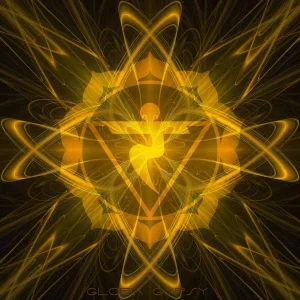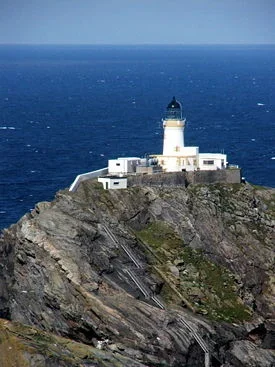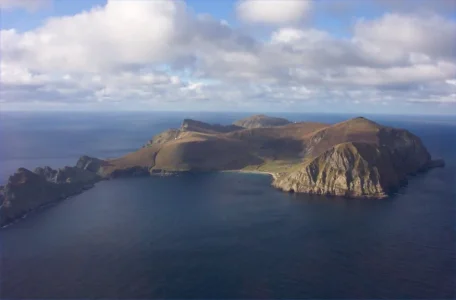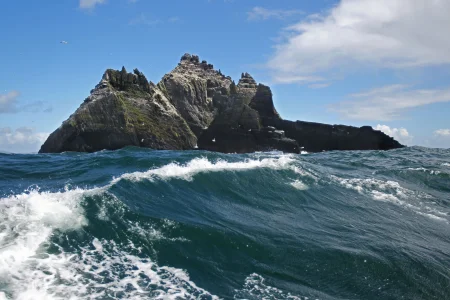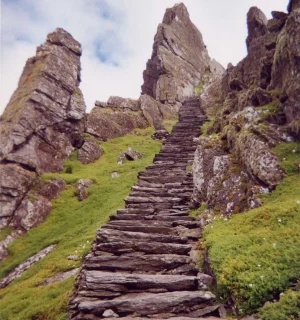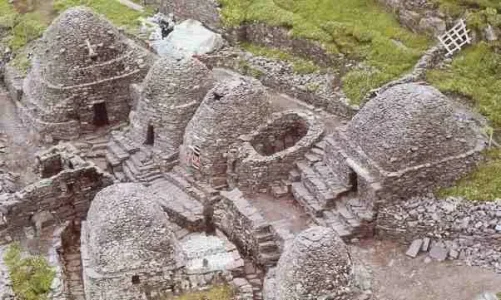muir
Banned
- MBTI
- INFJ
In 1707 the aristocracy voted for the parliament of Scotland to be merged with the parliament of England and for a union between the two countries to be created which formed 'Great Britain'.....this lead to scotland's national bard Robert Burns to decry the act calling those involved a 'parcel of rogues' who had sold out their county, 'bought and sold for english gold' after centuries of martial struggle by the scots to maintain their independence
Before this the King of Scotland had become the king of England in 1603 uniting the crowns
Since this union Scotland saw changes to its land laws which saw the destruction of the gaelic way of life and a cultural genocide of the gaelic culture. It saw tens of thousands of highlanders driven from their lands to the cities or to colonies in the British empire. The displaced and now landless and unemployed scots were often recruited into the British army and used as cannon fodder around the world from Afghanistan to the Americas and beyond, bleeding generations of scottish men dry
This was followed by the industrial revolution which saw many people turned into cogs in a corporate machine which in turn lead to the mechanised destruction of the first world war in which the scots suffered disproportionate loss of life compared to other parts of Britain.
After that catastrophe another world war 20 years later saw another generation of scots decimated and damaged.
With every war the bankers grew richer and more influential and the people suffered
As well as constant war the union brought a series of economic crises which today are euphemistically called the 'business cycle' but which are really banker orchestrated crises where the bankers make credit plentiful and then restrict the money supply so that they can repossess homes and grab businesses for pennies on the pound
The bankers have also gained hold of the oil industry as they control not only the 4 biggest banks but also the 4 biggest oil companies. This is why war is constantly waged against any countries that have their own supply of oil because the bankers want to instal corrupt puppet governments and grab their oil
Scotland however has large reserves of oil but the proceeds of this have been taken by the corporate powers down in London where the protected banking enclave known as 'the square mile' or 'the city of london' is.
Just over the north sea the Norwegians who had similar oil reserves have grown hugely wealthy with a soveriegn oil fund of £200 billion pounds and a high standard of living whilst the scots have had to watch their roads turn into potholed single lane jokes (poor infrastructure) and poverty grow in their cities with all the associated social problems that come with it such as crime and drug dependancy
Meanwhile the scots soldiers are still used to fight the bankers dirty and illegal wars abroad.
However the Scots have in recent years grown wise to the good cop / bad cop routine carried out by the labour and tory political parties who are two sides of the same 'business party' (and never follow through on any of their political promises. The liberal democracts can now be included in that equation) and have voted into power a nationalist party called the SNP (scottish nationalist party) who have called for a referendum on independance
Before the SNP came into power the corporate media propaganda machine went into action saying that the SNP would not be able to run the country but now years later the SNP have proven themselves competant and support for a YES vote amongst the public for the upcoming referendum (being held in september of this year 2014) is growing: http://rt.com/news/scotland-independence-poll-labour-956/

The corporate media portray scotland as beggars coming to westminster cap in hand for hand outs whilst at the same time the union has sucked the wealth and man power out of scotland; the blatant falsehood of this portrayal can be seen by how hard the corporate powers are working to keep the union together. Logically speaking if scotland were such a burden then they would want to let us go...but they aren't because they know we are an asset
An independant scotland would be a truely blessed country. Not only would it have the best wind and wave power in Europe but it also has large oil and gas reserves and ample water that could be sold to its neighbour England.
Combined with a thriving tourism trade and what could become a resurgent fishing insdustry (this was dismantled by the EU in favour of the spanish fishermen who get to fish the north sea) Scotland would be well placed to weather the coming economic upheavals (collapse of the dollar as the worlds reserve currency)
Scotland has one more great advantage in its small population who could share around its abundant energy resources and land. It has ample land to be self sufficent agriculturally and also vitally it can be ENERGY SELF SUFFICENT which means that scotland can avoid getting embroiled in ugly wars abroad
An independent scotland could turn its back on the dirty nuclear energy industry and could throw out the NATO nuclear submarine base on the Clyde river so that no more toxic radiation could be dumped in scottish waters by the ministry of defence; this would undermine NATO's efforts to surround Russia with nuclear weapons and Scotland could reach out to Russia as a potential trading partner instead thereby ending all the cold war nonsense (at least for the scots anyway). This would take scotland off russias list of nuclear targets as it became an ally and the shadow of nuclear destruction would be lifted from scotland for the first time since 1950
Finally scotland could undergo land reform which would give land and houses back to local communities breathing new life into the highlands and islands and the gaelic culture because city workers from the financial industry have been buying up second homes (holiday homes) in wild areas that they rarely use pricing out the locals who have had to move further away. Also city workers see scottish land as an investment much like art or precious metals and buy it up leaving it underutilised
Crofting...an old, sustainable and self sufficient way of life could undergo a resurgence bolstered by new technologies such as renewable energies and the internet
Stupid projects like the high speed railways could be scrapped and the money invested intead into upgrading broadband allowing rapid and efficient internet access to all scots helping their natural entreprenurial and innovative spirit
The scottish army could be brough home from the various theatres of war and could be used for home defence and as extras in films like the irish army and the film industry could be given tax breaks to incentivise their use of scotland for filming. A purpose built studio could be constructed as a further incentive.
The oil revenue could be used to build a renewable energy infrastructure and to upgrade the national grid to enable the transport of energy from the wave and wind hotspots down to the central belt. The public could be given subsidised energy by a nationalised energy company allowing each household more money in their pocket each month to spend into the economy. The north east is already an energy hub due to the oil industry and this could transition into a world leading renewable energy centre
An independent government would be free to implement advantageous financial regulations to assist small to medium sized businesses, innovation and invention
The scottish education once famed around the world which created the inventors of the telephone, the TV, the steam engine, the pneumatic tyre, tar macadam roads and a host of other inventions would be able to be reformed away from the regressive engineered ignorance of the westminster system to boost literacy and numeracy and to make scottish children amongst the brightest in the world to compete in the global market
Some people don't like or are unsure about the SNP government but once independance is achieved there will be elections to choose from the new parties that would spring up. The strong egalitarian streak that has always run through scottish culture would ensure that the interests of the people were put first ahead of the interests of the corporations/bankers
This is a once in a lifetime opportunity to not only decentralise power closer to the scottish (and english, welsh and n.irish) people by breaking up the power centre in westminster but also to improve the quality of life for millions and to end the 300 year war and debt cycle of the union
It's a hugely exciting time and all this could be achieved without the firing of a single shot if enough people believe in themselves and each other
SNP white paper on scottish independence:
http://www.scotland.gov.uk/Resource/Doc/293639/0090721.pdf
Before this the King of Scotland had become the king of England in 1603 uniting the crowns
Since this union Scotland saw changes to its land laws which saw the destruction of the gaelic way of life and a cultural genocide of the gaelic culture. It saw tens of thousands of highlanders driven from their lands to the cities or to colonies in the British empire. The displaced and now landless and unemployed scots were often recruited into the British army and used as cannon fodder around the world from Afghanistan to the Americas and beyond, bleeding generations of scottish men dry
This was followed by the industrial revolution which saw many people turned into cogs in a corporate machine which in turn lead to the mechanised destruction of the first world war in which the scots suffered disproportionate loss of life compared to other parts of Britain.
After that catastrophe another world war 20 years later saw another generation of scots decimated and damaged.
With every war the bankers grew richer and more influential and the people suffered
As well as constant war the union brought a series of economic crises which today are euphemistically called the 'business cycle' but which are really banker orchestrated crises where the bankers make credit plentiful and then restrict the money supply so that they can repossess homes and grab businesses for pennies on the pound
The bankers have also gained hold of the oil industry as they control not only the 4 biggest banks but also the 4 biggest oil companies. This is why war is constantly waged against any countries that have their own supply of oil because the bankers want to instal corrupt puppet governments and grab their oil
Scotland however has large reserves of oil but the proceeds of this have been taken by the corporate powers down in London where the protected banking enclave known as 'the square mile' or 'the city of london' is.
Just over the north sea the Norwegians who had similar oil reserves have grown hugely wealthy with a soveriegn oil fund of £200 billion pounds and a high standard of living whilst the scots have had to watch their roads turn into potholed single lane jokes (poor infrastructure) and poverty grow in their cities with all the associated social problems that come with it such as crime and drug dependancy
Meanwhile the scots soldiers are still used to fight the bankers dirty and illegal wars abroad.
However the Scots have in recent years grown wise to the good cop / bad cop routine carried out by the labour and tory political parties who are two sides of the same 'business party' (and never follow through on any of their political promises. The liberal democracts can now be included in that equation) and have voted into power a nationalist party called the SNP (scottish nationalist party) who have called for a referendum on independance
Before the SNP came into power the corporate media propaganda machine went into action saying that the SNP would not be able to run the country but now years later the SNP have proven themselves competant and support for a YES vote amongst the public for the upcoming referendum (being held in september of this year 2014) is growing: http://rt.com/news/scotland-independence-poll-labour-956/

The corporate media portray scotland as beggars coming to westminster cap in hand for hand outs whilst at the same time the union has sucked the wealth and man power out of scotland; the blatant falsehood of this portrayal can be seen by how hard the corporate powers are working to keep the union together. Logically speaking if scotland were such a burden then they would want to let us go...but they aren't because they know we are an asset
An independant scotland would be a truely blessed country. Not only would it have the best wind and wave power in Europe but it also has large oil and gas reserves and ample water that could be sold to its neighbour England.
Combined with a thriving tourism trade and what could become a resurgent fishing insdustry (this was dismantled by the EU in favour of the spanish fishermen who get to fish the north sea) Scotland would be well placed to weather the coming economic upheavals (collapse of the dollar as the worlds reserve currency)
Scotland has one more great advantage in its small population who could share around its abundant energy resources and land. It has ample land to be self sufficent agriculturally and also vitally it can be ENERGY SELF SUFFICENT which means that scotland can avoid getting embroiled in ugly wars abroad
An independent scotland could turn its back on the dirty nuclear energy industry and could throw out the NATO nuclear submarine base on the Clyde river so that no more toxic radiation could be dumped in scottish waters by the ministry of defence; this would undermine NATO's efforts to surround Russia with nuclear weapons and Scotland could reach out to Russia as a potential trading partner instead thereby ending all the cold war nonsense (at least for the scots anyway). This would take scotland off russias list of nuclear targets as it became an ally and the shadow of nuclear destruction would be lifted from scotland for the first time since 1950
Finally scotland could undergo land reform which would give land and houses back to local communities breathing new life into the highlands and islands and the gaelic culture because city workers from the financial industry have been buying up second homes (holiday homes) in wild areas that they rarely use pricing out the locals who have had to move further away. Also city workers see scottish land as an investment much like art or precious metals and buy it up leaving it underutilised
Crofting...an old, sustainable and self sufficient way of life could undergo a resurgence bolstered by new technologies such as renewable energies and the internet
Stupid projects like the high speed railways could be scrapped and the money invested intead into upgrading broadband allowing rapid and efficient internet access to all scots helping their natural entreprenurial and innovative spirit
The scottish army could be brough home from the various theatres of war and could be used for home defence and as extras in films like the irish army and the film industry could be given tax breaks to incentivise their use of scotland for filming. A purpose built studio could be constructed as a further incentive.
The oil revenue could be used to build a renewable energy infrastructure and to upgrade the national grid to enable the transport of energy from the wave and wind hotspots down to the central belt. The public could be given subsidised energy by a nationalised energy company allowing each household more money in their pocket each month to spend into the economy. The north east is already an energy hub due to the oil industry and this could transition into a world leading renewable energy centre
An independent government would be free to implement advantageous financial regulations to assist small to medium sized businesses, innovation and invention
The scottish education once famed around the world which created the inventors of the telephone, the TV, the steam engine, the pneumatic tyre, tar macadam roads and a host of other inventions would be able to be reformed away from the regressive engineered ignorance of the westminster system to boost literacy and numeracy and to make scottish children amongst the brightest in the world to compete in the global market
Some people don't like or are unsure about the SNP government but once independance is achieved there will be elections to choose from the new parties that would spring up. The strong egalitarian streak that has always run through scottish culture would ensure that the interests of the people were put first ahead of the interests of the corporations/bankers
This is a once in a lifetime opportunity to not only decentralise power closer to the scottish (and english, welsh and n.irish) people by breaking up the power centre in westminster but also to improve the quality of life for millions and to end the 300 year war and debt cycle of the union
It's a hugely exciting time and all this could be achieved without the firing of a single shot if enough people believe in themselves and each other
SNP white paper on scottish independence:
http://www.scotland.gov.uk/Resource/Doc/293639/0090721.pdf
Last edited:


